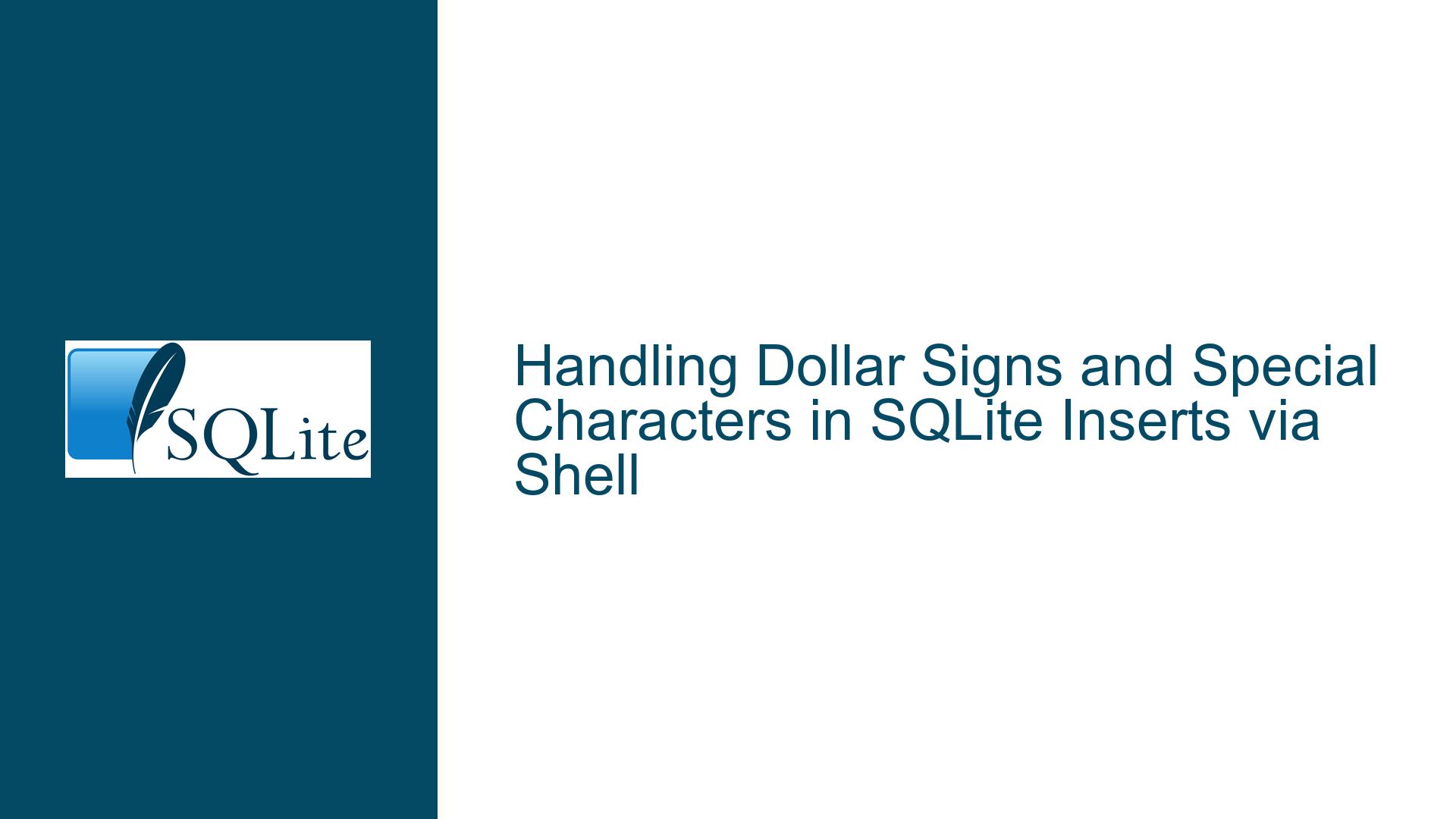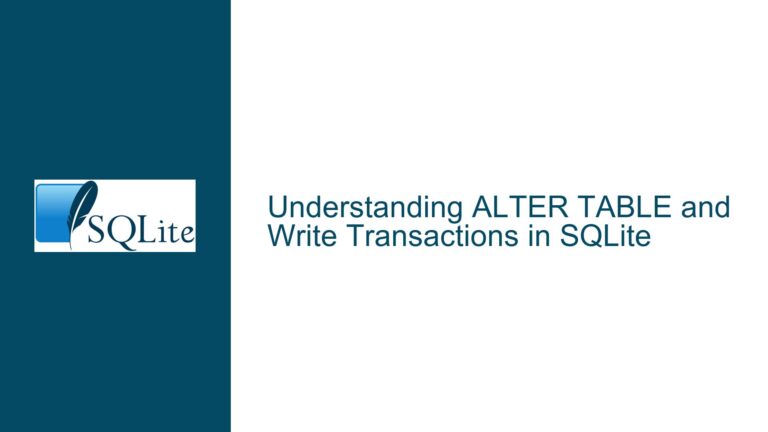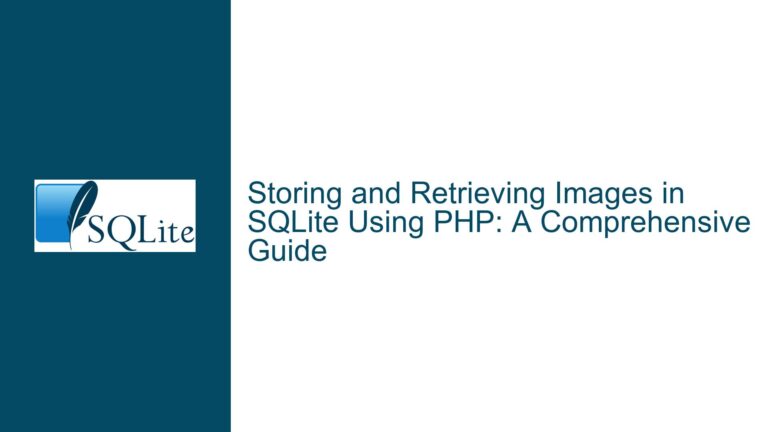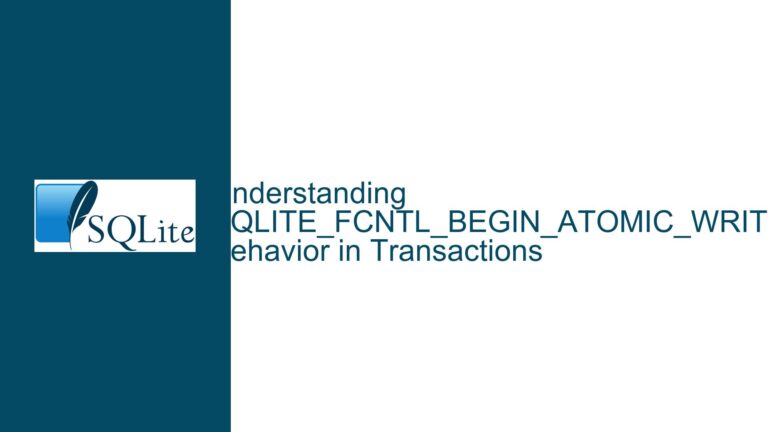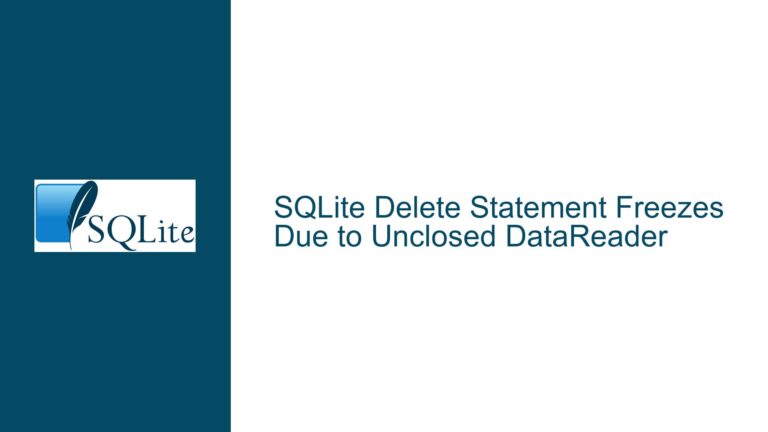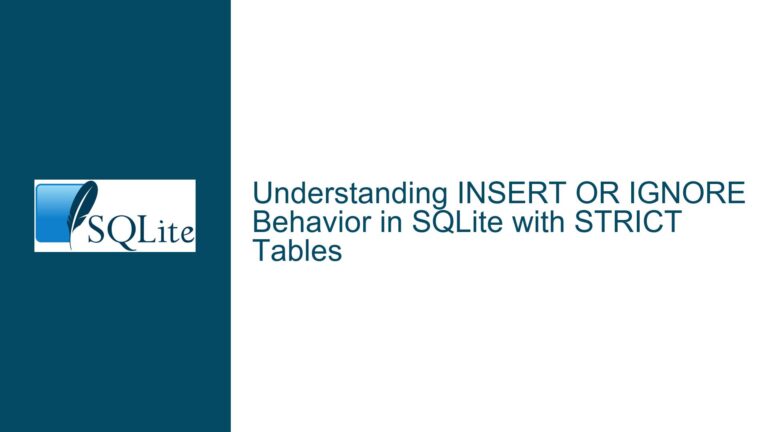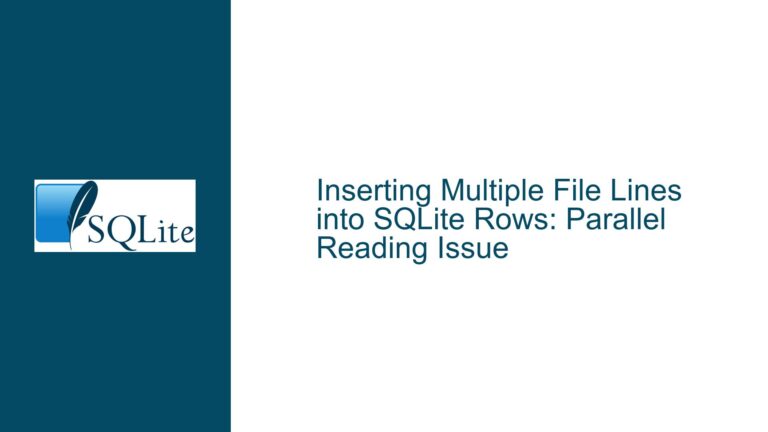Handling Dollar Signs and Special Characters in SQLite Inserts via Shell
Understanding Bash Variable Expansion Interfering with SQLite Inserts
Issue Overview
The core challenge arises when inserting text containing dollar signs ($) or percentage symbols (%) into SQLite databases via command-line interfaces. Users may observe unexpected substitutions such as "$0123" becoming "-bash123" or other altered strings. This occurs due to shell variable expansion — where shells like Bash interpret $0, $1, etc., as references to positional parameters or predefined variables — before the intended string reaches SQLite. The SQLite engine itself does not alter these characters during insertion unless improper quoting or escaping is used within SQL syntax. The confusion stems from the interaction between shell preprocessing and SQLite’s string literal handling rules. For example, when executing an INSERT command via sqlite3 db.db "INSERT INTO table VALUES ('$0123');", Bash replaces $0 with the name of the shell or script (often "-bash"), leading to unintended data corruption. The trailing "123" remains intact, resulting in "-bash123". This behavior is independent of SQLite’s internal mechanisms and directly tied to how shells parse command-line arguments.
Root Causes: Shell Preprocessing and SQL Quoting Misalignment
- Shell Variable Expansion: In Bash, Zsh, and similar shells, the dollar sign ($) triggers variable substitution. Strings like "$VAR" or "$0" are replaced with their corresponding values before the SQLite process receives the input. This preprocessing occurs even if the string is intended as a literal value for SQLite.
- Incorrect Quoting in Shell Commands: Using double quotes (
") around SQL statements in shell commands enables variable expansion. For instance,"INSERT ... VALUES ('$data')"allows Bash to replace $data with its value. If the data itself contains $, this leads to unintended substitutions. - SQL String Literal Escaping Rules: SQLite requires single quotes (
') to delimit string literals. To include a single quote within a string, it must be escaped as two single quotes (''). However, when passing strings through a shell, improper nesting of quotes (e.g., mixing single and double quotes) can lead to incomplete escaping or unintended shell behavior. - Dot-Command Parsing in SQLite Shell: When using SQLite’s CLI dot-commands (e.g.,
.import,.mode), input follows specific quoting rules detailed in SQLite’s documentation. Misusing these rules can cause additional parsing conflicts, especially with special characters.
Resolving Conflicts: Escaping, Quoting, and Validation Techniques
To ensure accurate insertion of strings containing $, %, or other shell-sensitive characters, follow these steps:
Use Single Quotes for SQL Statements in Shell Commands
Wrap the entire SQL statement in single quotes (') to prevent Bash from expanding variables:sqlite3 db.db 'INSERT INTO table (column) VALUES ('\$0123');'Here, the backslash escapes the $ only for the shell, ensuring it is passed literally to SQLite. Alternatively, use strong quoting (no variable expansion) by enclosing the value within single quotes inside the SQL statement:
sqlite3 db.db "INSERT INTO table (column) VALUES ('\$0123');"This uses double quotes for the shell command but single quotes for the SQL string literal, with $ escaping the $ for Bash.
Parameterized Queries to Bypass Shell Parsing
Avoid embedding data directly in SQL strings. Use placeholders (e.g.,?,:name) and pass parameters separately:sqlite3 db.db "INSERT INTO table (column) VALUES (:val);" -var val '$0123'The
-varflag binds the parameter, ensuring the shell does not process the value.Validate Input Through Interactive SQLite Sessions
Test problematic strings directly in the SQLite shell to isolate issues:sqlite> INSERT INTO table (column) VALUES ('$0123');If the value is stored correctly, the corruption is definitively caused by shell preprocessing.
Escape SQL Special Characters Properly
SQLite reserves single quotes (') for string literals. To insert a single quote, escape it as two consecutive quotes:INSERT INTO table (column) VALUES ('It''s escaped');For percent (
%) or underscores (_), escape them in LIKE clauses using theESCAPEkeyword:SELECT * FROM table WHERE column LIKE '%\%%' ESCAPE '\';Use Here Documents or External Scripts
For complex inserts, use a here-document to avoid shell interpolation:sqlite3 db.db <<EOF INSERT INTO table (column) VALUES ('$0123'); EOFAlternatively, store SQL commands in a file and redirect input:
sqlite3 db.db < insert.sqlDisable Shell Features Temporarily
In Bash, disable history expansion (which processes!) and enable verbosity for debugging:set +H set -x sqlite3 db.db "INSERT INTO table (column) VALUES ('\$0123');" set +x set -HAudit Shell Environment Variables
Identify variables that might interfere with substitutions. For example, $0 refers to the shell’s name, $1 to the first script argument, etc. Useechoto test substitutions:echo "$0123"This reveals how the shell interprets the string before passing it to SQLite.
Leverage Hex Encoding for Binary or Problematic Data
Use SQLite’sX'hex'notation for binary data or strings with problematic characters:INSERT INTO table (column) VALUES (X'2400313233'); -- Encodes "$0123"Configure SQLite Shell’s Output Modes
Use.mode quotein the SQLite shell to inspect how data is stored:sqlite> .mode quote sqlite> SELECT * FROM table; '$-bash123' -- Indicates corruption '$0123' -- Correct after proper escaping
By systematically isolating shell preprocessing from SQLite’s parsing rules, users can ensure accurate data insertion. Key principles include strict quoting discipline, parameterization, and validation through interactive sessions. For long-term robustness, adopt parameterized queries in applications and avoid constructing SQL statements via string concatenation in shell environments.
